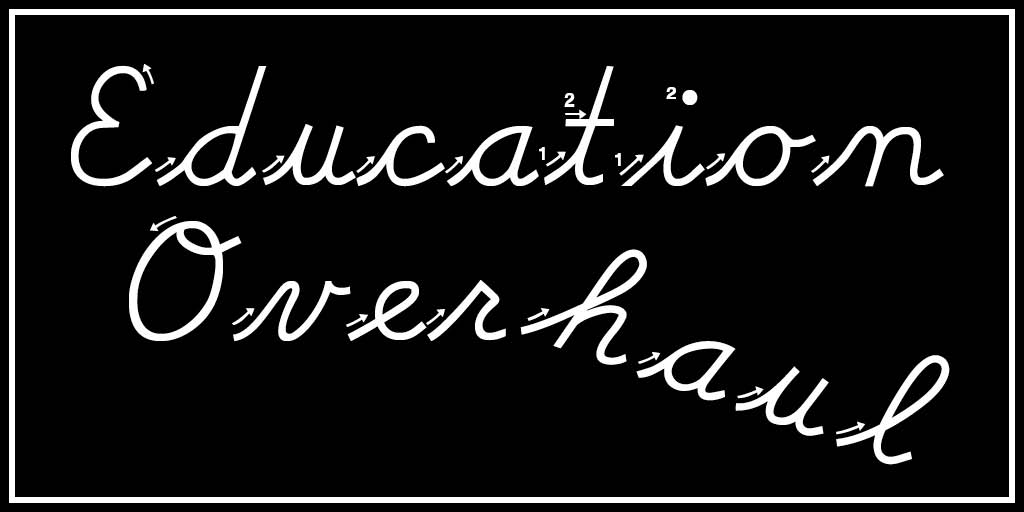By Molly McCracken and Pamela Rogers

First published in the Winnipeg Free Press Wednesday May 12, 2021
Public education is a public good that promotes well-being and citizenship for all. Efforts to improve public education should be done for this purpose. Manitoba has instead joined a concerning trend across Canada demanding constant improvement in education with less and less resources led by private consultants such as Dr. Avis Glaze. Glaze reviewed education systems in PEI, Nova Scotia and most recently, Manitoba. The day the Glaze report was publicly released is the day the province released Bill 64 the Education Modernization Act. The resultant changes centralize control over education under the guise of cost-savings, resulting in privatization and a loss of accountability to the public.
Manitoba can look to Nova Scotia for the implications of abolishing School Boards and replacing them with Parent Advisory Councils on Education (PACE). When Nova Scotia School Boards were wiped out, historically oppressed groups lost representation as School Trustee seats reserved for Indigenous and Black Nova Scotians disappeared.
Information about PACE is hard to come by for NS parents – agendas and minutes hard to find and contact info for representatives is not available. Paul Wozney, President of the Nova Scotia Teachers’ Union called the implementation of School Advisory Councils (the NS version of PACE) by the Department of Education “an ocean of unkept promises”. Parents face barriers to participation in PACE, receive no training and promised communications with the Minister of Education were not fulfilled.
Without School Trustees, NS parents have nowhere to turn. Parents on PACE do not have the training or time to advocate for and advise parents on the school system that School Trustees had.
In jurisdictions where school boards have been abolished, they have been brought back due to necessity – New Brunswick and PEI for example. Research shows that replacing democratically elected school boards with alternative structures does not improve student achievement. Here in Manitoba local democratic oversight is proven to foster innovation. For example, in Winnipeg a new community hub model is improving educational outcomes and poverty in the Louis Riel School Division. Abolishing School Divisions does not advance inclusion and equity.
High child poverty rates plague both Manitoba and Nova Scotia: Manitoba has the highest rate of child poverty and NS the third-highest in Canada. Economic insecurity is proven to impact educational outcomes. In Manitoba – 86% of students perform as expected on standardized tests, based on socio-economic standing. Research by the Manitoba Centre for Health Policy finds 14% who do not perform at the expected level, do not due to poverty. Instead of addressing the conditions of poverty through social housing or better income transfers, neoliberal governments attack the education system.
Standardized testing itself as a measure is problematic. International experts have called for a moratorium on PISA as it creates an illusion of education quality based on multiple choice questions and simple solutions to complex problems. Standardized tests like PISA are used by neoliberal governments to justify authoritarian top-down approaches under the guise of improving test results. The result is a race to the bottom, whereby the education system is judged by test results and not about supporting well-rounded students in areas important to a healthy democracy such as history and social studies.
The Glaze report (Raise the Bar) in Nova Scotia led to the removal of administrators from the Nova Scotia Teachers’ Union (NSTU), and suggested the creation of a college of teachers as an additional level of bureaucracy for school accountability and to discipline educators. While administrators were removed from the NSTU membership, the NSTU fought against the college of teachers and won. In Manitoba, Bill 64 would remove principals and vice-principals from their bargaining unit and introduce “business managers” for schools. The aims of neoliberalism: over-reliance on data, school success accountability, and privatization undermines the democratic process, moves away from collegiality and community, to punitive, performance models.
The forced removal of school administrators from the NSTU supports the model of privatization, since principals are no longer curriculum and learning leaders. In this model, administration exists first and foremost to enact disciplinary measures, carry out performance assessments on their staff, and report on school success data. Such changes lessen teacher and administrator professional autonomy, and add greater reliance on strict structures to dictate how they will work in their own school communities. Administrators in business models of leadership become are gatekeepers for the Department of Education, not educational leaders.
Nova Scotia’s K – 12 education overhaul is a cautionary tale for Manitoba. Removing democratic oversight makes public education less accountable and more difficult for parents to navigate. Centralizing administration stifles innovation and local ability to respond to local needs. Poverty remains unaddressed when the system is run like a business for quantitative results only. Public education is a public good, any reforms must be predicated on equity, public accountability and democracy.
Molly McCracken is the Manitoba director of the Canadian Centre for Policy Alternatives. Pamela Rogers is Director of Research and Professional Learning at the Canadian Teachers’ Federation.
“Attack on Public Education: Lessons for Manitoba” available for viewing at youtube.com/c/CCPAManitoba


